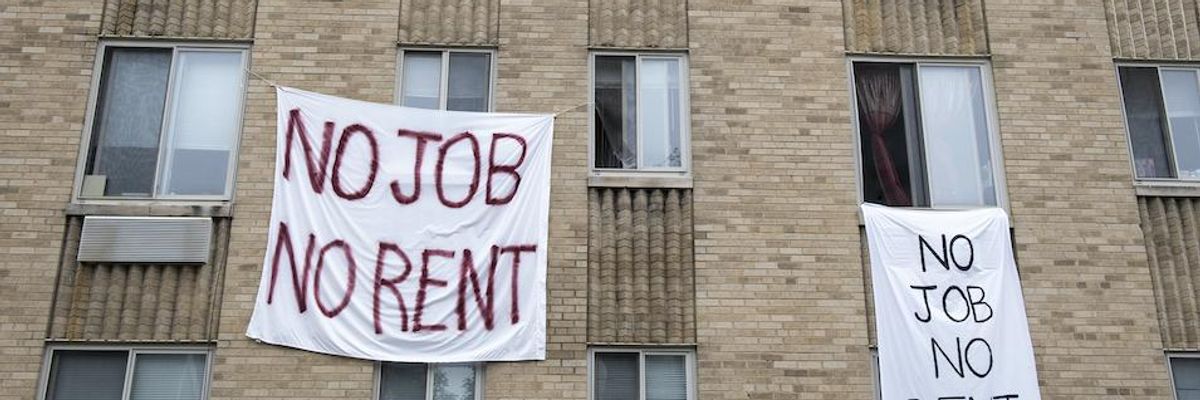The ramifications of the coronavirus pandemic on the U.S. economy will be devastating enough to send the country into a certain and "prolonged depression," economist Josh Bivens warned Tuesday, unless federal aid is delivered to state and local governments.
"State and local governments are currently forecast to be facing revenue shortfalls as large as $1 trillion over the coming years," Bivens wrote at the Economic Policy Institute blog. "If no help is forthcoming from the federal government to close these shortfalls, the result will be an economic disaster--one that is not confined to these governments."
In his analysis, Bivens looked at data from the Great Recession from the 2010s and the austerity policies from that time which, he explained, slowed that recovery.
"We need to learn from our past," tweeted economist Elise Gould. "Austerity was a huge drag on the recovery from the Great Recession. Let's not make the same mistake."
As Bivens explained:
The spending austerity in the 2010s was the entirereason why it took a full decade to return to pre-crisis unemployment rates following the onset of the Great Recession. It is why millions of Americans struggled--through no fault of their own--to find work and it is a key reason why wages for tens of millions of Americans barely kept pace with price inflation over this time, as labor markets remained too soft to give workers the bargaining power they needed to demand better-paying jobs.
The austerity "clearly delayed economic recovery for U.S. workers by years," said Bivens.
With similar cuts this time, a "prolonged depression is guaranteed," Bivens warned.
"The economy is currently approaching a knife edge in how recovery will proceed," wrote Bivens. "If the virus relents and effective public health measures are undertaken that allow a phased reopening of business, and if the federal government provides sufficient measures for relief and recovery during this crisis, then recovery could be rapid."
"But this confidence and demand will be savaged if policymakers allow state and local governments' spending to be hamstrung by the crisis," he continued. "These sub-national governments spend about $4 trillion every year in the economy, making them the second-largest source of spending outside of the federal government."
"If they are forced into crash-cutting," Bivens concluded, "the entire economy will suffer."
Bivens warning comes as Republicans in Washington show no sense of urgency in ramping up a federal rescue effort to state and local governments.
As the Washington Post's Jeff Stein reported Tuesday, some White House officials are so confident in the possibility of an economic recovery they have broken off talks with Congress on more relief aid. President Donald Trump and his advisors believe that the economy will roar back to life in the next few weeks, a view that "clashes with the dire predictions of many mainstream economists, as well as Federal Reserve Chair Jerome H. Powell."
Claudia Sahm, who served on former President Barack Obama's Council of Economic Advisers as an economist, told the Post that urgent legislative action from the federal government was essential to stave off the worst effects of the ongoing coronavirus outbreak economic crisis.
"Complacency among policymakers is what made the 'Great Depression' a depression," said Sahm. "If they do not do more, if they 'wait and see,' they will do exactly what happened in the 1930s."

